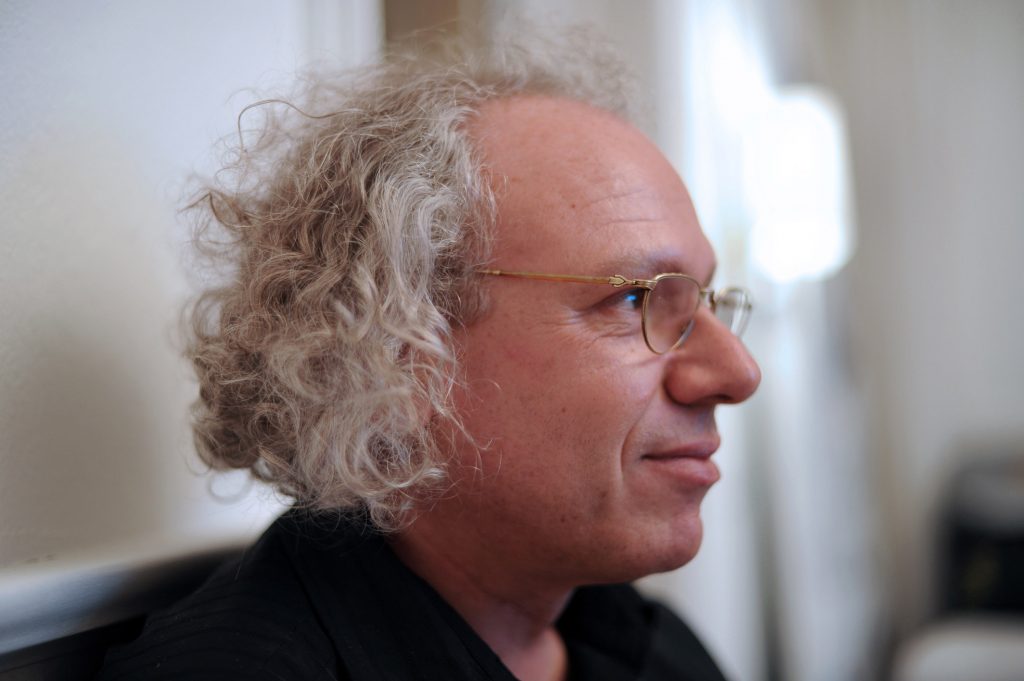Colloqium #9
March 2019
Description
3 Lectures on Ai technologies and philosophical and social implications
1 On artificial intelligence and the technologies that supposedly amount to it. Speaker: Auris-E. Lipinski
2 Using evolutionary algorithms for neural network generation. Speaker: Kristina Georgieva
3 Mor(e)on: Why AI seems to be indicating a need for Magic in Society. Speaker: Alexander Mankowsky
The discussion will be led by two questions:
- What can intelligence refer to, in terms of technology?
- Is this equivalent to what many people in society seem to think and hope about the existing attempts on AI?
Speakers
Kristina Georgieva: Data scientist, software engineer, poet, writer
Auris–E. Lipinski: Auris-E. Lipinski is a studied philosophy teacher with experience in the tech industry, providing one-on-one lessons and tech-communication for companies and entrepeneurs, as well as language trainings and simultaneous translations. While studying Philosophy & English at Humboldt University, Berlin, she became a scientific assistant at VIOM GmbH. She founded PhenCoCo in the aftermath of university seminars like “Konstruktion und Phänomenologie der Wahrnehmung”, Phänomenologie und Kognition" (M. Thiering) and “Computation und Geist” (J. Bach). She has been involved in different research and development projects, guiding her academic interests towards way finding and cognitive preconditions for navigation, both computational and phenomenological. This includes working on spacial concepts found in philosophy, psychology and robotics, subsuming Gestalt theory, embodiment theories, language/ concept importance, association and intuition. Her personal interests lie in current issues in philosophy, technology and science, specifically navigation, optimisation, and telematics. The last years have added attention to so called ‘AI’ versions and their impact on society, as well as propaganda methods and discrimination topics.

Alexander Mankowsky: Futurist Mercedes Benz AG & FU, Future Studies & Ideation as a working field requires explanation: Future Studies normally results in reports made from scenarios about possible futures. Most often these futures are slightly dystopian or alarmist. These reports then are thrown at business and government, with the request on ‘do something about it’, which is the reason for the alarmist undertone. Personally I find this procedure boring and unsatisfying, even irresponsible. To make more about it, I added the ‘& Ideation’, to show that after the insight in possible futures, the product should be a concept, developed together with creative people from many professions. Take some risk; get your hands dirty, that’s where the fun part begins. (Quelle:LinkedIn)
Moderation
Anna Strasser: After postdoctoral positions as scientific researcher and coordinator in Freiburg (Center for Cognitive Science) (2004-07) & Berlin (Berlin School of Mind and Brain) (2009-16) and a visiting fellowship at the Center for Cognitive Studies at Tufts University, USA with Daniel Dennett (2018) I founded the DenkWerkstatt Berlin and work now as an independent, freelance philosopher in Berlin. Since autumn 2020 I am an associate researcher of the Cognition, Values, Behaviour (CVBE) research group at LMU-Munich. From March to June 2023, I was a Visiting Fellow with Eric Schwitzgebel at UC Riverside. (Source: https://www.denkwerkstatt.berlin/ANNA-STRASSER/)